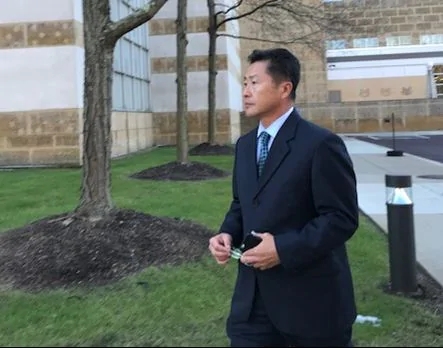 Many folks in Prince George’s County (Maryland) know that we are constantly asking to see the financials, the books, the independent audits. We have also been advocating for an independent Inspector General (IG). Due to the community support for transparency and accountability through this blog, most people in this progressive County fight these requests (“Everything is fine, no one is stealing. The books are private. Move along buddy, nothing to see.”)
Many folks in Prince George’s County (Maryland) know that we are constantly asking to see the financials, the books, the independent audits. We have also been advocating for an independent Inspector General (IG). Due to the community support for transparency and accountability through this blog, most people in this progressive County fight these requests (“Everything is fine, no one is stealing. The books are private. Move along buddy, nothing to see.”)
For many of us, the independent auditing thing is a serious piece of the public/government transparency issue. We certainly cannot say we are for transparency and then turn around and say, “Just trust us.” By nature, many of us want to trust, but then on the other hand, good government really is fundamentally all about total transparency. Will it absolutely stop people for stealing? No. But we think knowing that someone is regular watching causes folks to behave differently. And it might stop a serious embezzlement scheme such as the one discovered during the waning days of Dr. Kevin Maxwell when he engaged in serious issues of dishing out thousands of cash without any oversight. From the very beginning we knew something was amiss.
The same goes for the current administration of Monica Goldson in Prince George’s County Public Schools (PGCPS) engaged in violating rights and covering up misconduct on several levels including censoring the press to hide our demand for transparency and accountability.

Former Montgomery County official Byung Il Bang leaves federal court in Greenbelt, Md., on Friday after pleading guilty in an embezzlement scheme. (Lynh Bui/TWP)
By Jennifer Barrios, Dan Morse and Lynh Bui
To those he worked with, Byung Il “Peter” Bang exuded an aura of calm competence — speaking deliberately, explaining deals patiently. The second-in-command at Montgomery County’s economic development department was in charge of spurring new businesses and breathing life into old ones in the Maryland county of 1 million people just outside Washington, D.C.
But the meticulously groomed, 20-year employee had another side — one that led him to embezzle $6.7 million in county money to feed his gambling addiction.
He spent six years diverting economic development funds to a sham company, getting caught only after federal tax authorities began investigating the massive cashier’s checks he brought to casinos.
In separate federal and state court appearances Friday, Bang, 58, the former chief operating officer at the county’s now-defunct Department of Economic Development, pleaded guilty to federal charges of wire fraud and making false statements on a tax return, and to state charges of a theft scheme and misconduct in office.
In U.S. District Court in Greenbelt, Md., on Friday morning, Bang, dressed in a dark suit, responded to questions from U.S. District Judge Paula Xinis with short yes-and-no answers.
When Xinis asked whether anyone was forcing him to accept the plea agreement, Bang responded, “Other than my conscience, no.”

Byung Il Bang, also known as Peter Bang, is shown testifying before the Montgomery County Council in this 2015 video still. (N/A/Video Still)
He faces federal sentencing in February, followed by sentencing in state court in Montgomery. Bang was given supervised release pending sentencing, and he must also alert his new employer, a cleaning service, of his conviction.
As part of Bang’s guilty plea in Montgomery County, he also is obligated to repay the county more than $6.7 million.
The scheme rocked government officials in Montgomery, a suburb that prides itself on a reputation for good governance.
“I’m absolutely shocked and appalled,” County Council member George L. Leventhal (D-At Large) said.
He said that Bang had a reputation as a stickler for detail who would reject proposals from businesses if he didn’t feel they were robust enough.
“He was always impeccably dressed. And he spoke with great precision. He projected an image that was very careful and credible,” Leventhal said. “Oh my God, it’s a Hollywood movie — it’s incredible. It’s impossible to believe. We’re all reeling.”
Yet the county’s economic development system also had been without tight transparency and rules that allowed Bang, who lived in Germantown, freedom from scrutiny.
“There should have been clearly more oversight, a combination of it, that’s clear,” County Executive Isiah Leggett (D), who took office in 2006, said Friday.
The controls have since been enhanced, with new procedures for reviewing agreements that are exempt from usual procurement rules and the creation of a compliance unit at the Finance Department.
Leggett said the fraud was limited to Bang. “This is not some ongoing corruption from an entire agency or department,” he said. “This is an act of one person.”
Montgomery County State’s Attorney John McCarthy said the thievery was driven by Bang’s gambling addiction, which “served as motive for his crimes.” Bang visited casinos in Las Vegas, Delaware and West Virginia between 2010 and 2016, the years the scheme was in place, officials said.
As his office’s chief operating officer, Bang, who started working for the county in 1997, could request disbursements of county money to various incubators, designed to support small companies that would then grow and bring jobs and tax revenue to the county.
The siphoning of funds began, according to federal authorities, after Chungcheongbuk province in South Korea entered into an agreement with the Montgomery County government to set up an incubator fund to help grow South Korean businesses in the county.
Bang created a sham company with a highly similar name, Chungbuk Incubator Fund LLC, and opened four Chungbuk bank accounts using his home address, according to federal court records.
Using fraudulent invoices that he was in position to approve for payment, Bang routed county funds — via checks and direct deposits — to the bank accounts he controlled, federal authorities say. Between 2010 and 2016, Bang had the county Finance Department send $5.4 million to the Chungbuk bank accounts, according to Bang’s plea agreement.
Bang also used phony paperwork to get around procurement freezes the county put in place during budget constraints, the state’s attorney’s office said Friday.
He also got the Maryland Economic Development Corp. to send $1.2 million and diverted more than $43,000 in rent payments from the Conference and Visitors Bureau of Montgomery County — which shared office space with Bang’s department — to his shell company.
Bob Brennan, executive director of the Maryland Economic Development Corp., said the organization routinely received requests from the county through Bang to relinquish funds to support various development initiatives. None of the requests raised red flags.
“There’s nothing that would have triggered or caused us to be suspicious,” Brennan said, adding that Bang’s requests were backed up by his department.
The fraud was discovered after the Internal Revenue Service reviewed reports of suspicious activity made by several casinos. Bang, who had filed for bankruptcy in 2007, brought cashier’s checks to the gambling sites that ranged in size from $35,000 to $200,000, officials said, but declined to tell the casinos the source of the funds. Investigators obtained copies of the checks and traced the money to fraudulent bank accounts Bang had created, and then to Montgomery County.
His plea to making false statements on his tax return stems from his failure to claim the money he was embezzling as income.
“The IRS brought the case to our office and really drove this investigation,” said Jon Lenzner, the first assistant U.S. attorney for Maryland. “Mr. Bang was entrusted with the important mission of bringing economic development and jobs to Montgomery County, and he violated that trust by embezzling nearly $7 million.”
Bang’s department was disbanded and privatized in 2016, a change that Leggett at the time said would foster private-sector involvement in efforts to grow the county’s economy.
Bang was transferred to the county’s Finance Department that year and was paid an annual salary of $175,127. He was terminated by the county in June 2017.
The money Bang stole appears to be gone, McCarthy said.
Via Washington Post
***
















 A petition has been launched by Meredith Kaunitz and supported by PG Parents. It calls for the Administrative Procedure on the Assignment of Homework (AP No. 6154) in Prince George’s County be updated. The current document has never been updated since 1983. The petition is directed at the following individuals: Dr. Goldson, CEO of PGCPS, Shauna Garlington Battle, Esq., General Counsel of PGCPS, Segun Eubanks, Chair of School Board of PGCPS. By the time of publishing this post, the petition had already generated more than
A petition has been launched by Meredith Kaunitz and supported by PG Parents. It calls for the Administrative Procedure on the Assignment of Homework (AP No. 6154) in Prince George’s County be updated. The current document has never been updated since 1983. The petition is directed at the following individuals: Dr. Goldson, CEO of PGCPS, Shauna Garlington Battle, Esq., General Counsel of PGCPS, Segun Eubanks, Chair of School Board of PGCPS. By the time of publishing this post, the petition had already generated more than 


 On November 7, 2018,
On November 7, 2018, 

 Happy Thanksgiving!
Happy Thanksgiving!



 Many folks in Prince George’s County (Maryland) know that we are constantly asking to see the financials, the books, the independent audits. We have also been advocating for an independent Inspector General (IG). Due to the community support for transparency and accountability through this blog, most people in this progressive County fight these requests (“Everything is fine, no one is stealing. The books are private. Move along buddy, nothing to see.”)
Many folks in Prince George’s County (Maryland) know that we are constantly asking to see the financials, the books, the independent audits. We have also been advocating for an independent Inspector General (IG). Due to the community support for transparency and accountability through this blog, most people in this progressive County fight these requests (“Everything is fine, no one is stealing. The books are private. Move along buddy, nothing to see.”)


